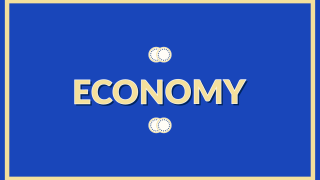In the independent Mexico there have been two eras of high economic growth: that of the Porfiriato at the end of the XIX Century and the good years of stabilizing development, between the forties and the end of the sixties of the XX Century. The political characteristic of both moments was centralization of power. In a country with such prominent geographic, ethic, demographic and physical dispersion and diversity, the centrifugal forces have always been enormous, the reason why it’s tempting to establish an automatic correlation between the two phenomena: control commensurate with growth; diversity and decentralization commensurate with chaos. However, this correlation is non-existent: there are many factors that intervene. More importantly, the era of globalization creates new realities that make it impossible to establish a causal relationship between political centralization and economic success.
To begin with, the context is decisive: with distinct characteristics, the common denominator between the Porfirio Díaz years and those of stabilizing development was the existence of a capacity of process control, information control and, above all, control of crucial factors such as financial stability, infrastructure development, credit growth and control of the work force by means of the unions operating under the aegis of an all-powerful government. Some of these factors continue to be crucial to economic growth, but others are the product of the specific moment. The context matters and the current one has changed radically.
Today’s success factors include many of those from the past (such as infrastructure, financial stability and the existence of a functional government), but the key to add value resides in the capacity of individuals to furnish ideas, creativity and, in general, contributions that are the product of intellectual activity that raises productivity in the era of information and services, very distinct from that which preceded it in the agricultural and industrial ambit. In terms of their essence, two things have changed: physical force has been replaced by intellectual creativity and physical boundaries -like national borders- have ceased to be a limiting factor. At present commerce and the exchange of ideas are vital for growth. The importance and transcendence of the government has not changed: what has changed is the nature of its function.
Kofi Annan, former Secretary General of the United Nations, said that “we cannot wait for the government to do everything. Globalization operates on Internet time”. In effect, a government cannot do everything, but in an era of vast change, of permanent change in fact, what is crucial is for the government to adapt itself to the needs of the economy and the society, which undergo constant transformation. Of course, there are leading functions that do not change –such as maintaining the population’s social peace and security- but there are others that modify themselves constantly: some become obsolete, others take on unfathomable transcendence.
The new government has instated itself as a factor of control and of power. With this it has been able to devise the perception that the solutions to the dilemmas facing the country are found in its hands. This is no small achievement, above all after an era of conflict, violence and uncertainty that began in 1994 and only got worse. The presence of a government that emblemizes a sense of authority with its presence has been welcomed by the population. However, the form and content that it has exhibited to date is very similar to that of the sixties of the past century, as if it were keen on recreating that era. The problem is that both globalization as well as the factors that make success possible at present alters the panorama. Success today depends on the existence of a government that works but also on an economic strategy compatible with the reality of globalization and with the characteristics of an economy in which the manpower component is increasingly less relevant in terms of adding value. Instead of controlling the population, what must be created is an educative, health and cultural environment that favors the development of human capital; rather than control over the economy the key lies in promoting entrepreneurial activity, eliminating restrictions and allowing for constant change.
The key in the era of globalization resides in the capacity of individuals to create and add value as well as to increase productivity. The presence of a strong government with clearness of vision is a crucial factor in the process, as long as it plies this strength to engender conditions for progress and not merely for controlling the population. That is, in this historic era, control and development are contradictory. If one desires to achieve the latter it will be imperative to employ the former with parsimony and intelligence.
Control in the Era of Globalization






Comments